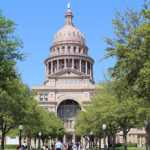Bills before the Texas Legislature to provide “school-choice” vouchers for the state’s children violate Baptist principles on several fronts.
 Marv Knox
Marv Knox
First, some background: A push to pass vouchers is one of the major themes of this session of the Legislature. Gov. Greg Abbott called vouchers “a civil rights issue.” Lt. Gov. Dan Patrick, who championed the cause in the previous session, said passing vouchers is his second-highest priority this year. Bills in both houses provide the framework for making good on their aims. (Click the links to see details on SB542, HB1184, SB3 and HB1335.)
Understandable passion
The reason so many Texans resonate with these proposals is apparent. We can understand parents’ passion for educating their children. Evaluating the quality of that education is subjective, and caring parents always want better for their kids. Some feel their children can do better in private schools, and they would like help covering the cost.
The politicians’ reasons for backing vouchers are harder to parse. Abbott and Patrick cite their concern for civil rights and poor families when they talk vouchers. But under their leadership, the state has shown precious little care for civil rights and the poor, lagging behind most of America in many markers. So, this carved-out concern comes across as suspect.
Texas can and should do better by its children. Since education joins safety and health care as the three most important pillars of child welfare, we must provide all our children with abundant opportunities to learn and develop and succeed in life. This is important because it is right and just. It’s also vital, because the future of our state depends upon education.
Undermining education & principles
Given our history and heritage, Baptists should care deeply about providing quality education for all Texas children. Supporting “school-choice” vouchers undermines both that venture and Baptist principles. Several points to consider:
Sign up for our weekly edition and get all our headlines in your inbox on Thursdays
• Vouchers deny Jesus’ admonition to care for “the least” among society. In fact, they do just the opposite.
First, vouchers rarely, if ever, provide sufficient funding for poor children to attend the private schools they would support. They aren’t likely to cover basic tuition, much less related costs, such as transportation, fees, uniforms, etc.
Second, they compound the disparity between the haves and have-nots by pulling money out of public education. So, the public schools that by definition take all comers lose financial support, while the private schools glean only the children whose families can afford them. This perpetuates a cycle of disparity and extends it to another generation.
Third, vouchers expand racial segregation. Although race and economic status do not track precisely, a disproportionate share of Texans of color are poorer than their white counterparts. When children of color still cannot afford private schools and a higher percentage of white children move to private schools, the chasm between races widens.
• Vouchers deny Baptists’ historic commitment to the separation of church and state on at least two fronts.
First, taxpayers’ money will go to support parochial education. The money may be laundered through various schemes and perhaps will be handed to the schools by the parents, but it still will be money provided by taxpayers to fund religious teaching in church-sponsored schools. If violating the principle alone—which dates back more than 400 years—doesn’t bother you, think more pragmatically. Do you want your tax money supporting Muslim, or Hindu, or Catholic or atheist education? All are not only possible, but entirely probable.
Second, vouchers inevitably will impact teaching in private schools, including church-sponsored schools. Government inevitably monitors what it funds. So, vouchers invite government oversight into private schools. And if the voucher plans create a carve-out for church-sponsored schools, then the government would be derelict in its duty to provide accountability for taxpayer funds.
• Vouchers undermine concern for and protection of the common good.
When Baptists have been at our best, we have been upstanding citizens and great members of our communities. We have championed and worked for solutions and practices that seek the best for all people. By further segregating our society, undermining support for the state’s most vulnerable families and widening economic disparity, vouchers fly in the face of the common good, a core Baptist value.
Speak up
Now is the time to let your Texas legislators know how you stand on “school-choice” vouchers. The voucher bill is likely to come before the Senate in the next couple of weeks. Call or write your senator and representative. To find out who they are and how to reach them, click here.
And for excellent updates and resources on this and other vital legislative issues, visit the Pastors for Texas Children website.
Follow Marv on Twitter: @marvknoxbs














We seek to connect God’s story and God’s people around the world. To learn more about God’s story, click here.
Send comments and feedback to Eric Black, our editor. For comments to be published, please specify “letter to the editor.” Maximum length for publication is 300 words.